- Learning time
- 20 minutes
- First play time
- 60 minutes
Dice Forge
Designed by: Régis Bonnessée
Dice Forge‘s theme is all about gods, heroic quests and divine blessings, but really here the fun is in the mechanics: customising your own dice!
Each player begins with a set of two custom dice that when rolled bring you the basic rewards of sun shards (hereafter referred to as ‘red’), moon shards (blue), and gold (gold). Everyone has their own player board that keeps track of the three resources, plus your points.
Over 9 or 10 rounds (depending on player count) players roll their dice at the start of each round, and add whatever they’ve rolled to their player board. Then they have two possible actions: they can visit the forge and, paying gold for the privilege, customise their dice. Each die face is removable, so you can take off the paltry ‘1 gold’ and add ‘4 gold’ instead, or 2 blue or a number of other, rewarding die faces.
The other possible action is the heroic feat: move your pawn to the relevant spot on the board, and use your blue or red (or both) to get cards. These perform various effects depending on the card: bringing you resources and/or victory points, or allowing you to further customise your dice. So the balance throughout the game is forging your dice so they reward you better, and spending those rewards. (Players can also ‘buy’ an additional action on any turn by spending two red).
After the set number of rounds finish, the game is over and points are tallied. Most points wins!
The guru's verdict
-
Take That!
Take That!
Not much - but there is a finite amount of heroic feat cards, so players can beat each other to the punch. There is a fair degree of luck in the game though, so one could feel targeted by fate.
-
Fidget Factor!
Fidget Factor!
Pretty low. Once you've played Dice Forge once, the rules are simple and the dice dictate terms to a reasonable degree.
-
Brain Burn!
Brain Burn!
Low. The game certainly doesn't 'play itself' - there are decisions to be made - but really it's just about seeing how best to utilise your die rolls.
-
Again Again!
Again Again!
Dice are obviously random, and there are enough dice faces and heroic feat cards to give some variety to play as well. It doesn't have huge strategic depth, but it's meant as a light family game.

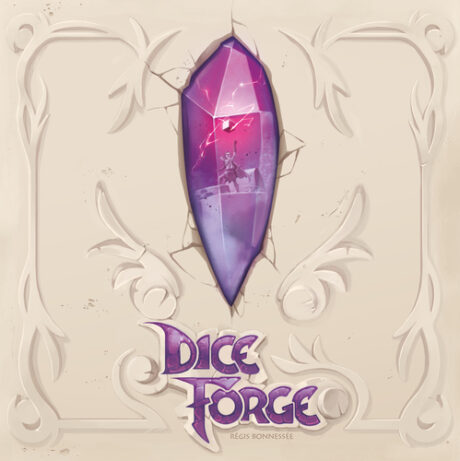
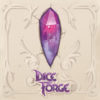
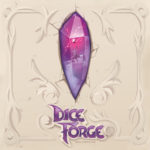
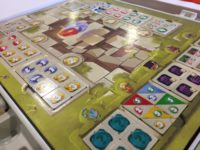
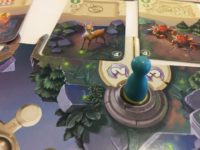
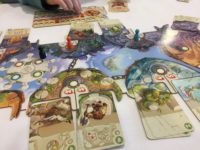
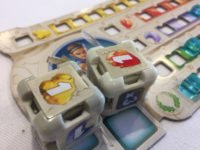


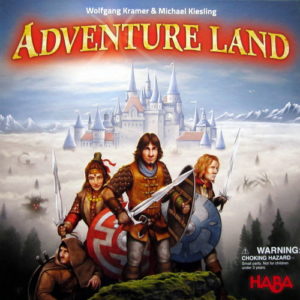
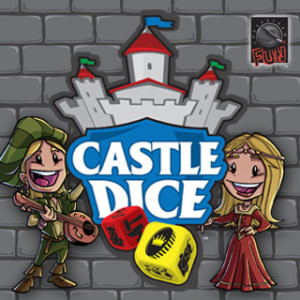
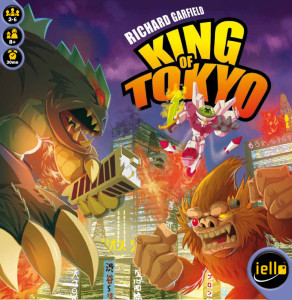
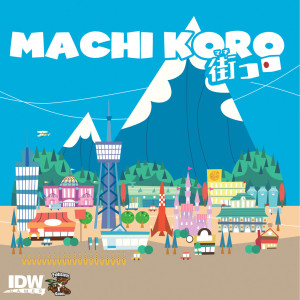
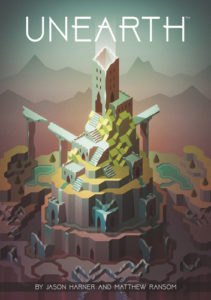
Sam says
Me and my son enjoyed Dice Forge so much we played it three times running. The theme is almost irrelevant - it's about upgrading your dice and really, really, hoping your roll the upgraded sides. If you don't get that good fortune, you can feel a bit of a spectator to proceedings and that's the one down-side here: there's a lot of luck involved. But it's so fast-moving and silly that you can kind of forgive it that. If the idea of upgrading dice appeals, then there's a more complex and nuanced take on the same idea in Dice Realms.